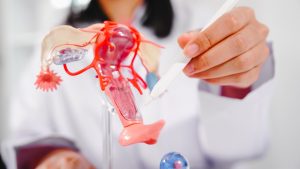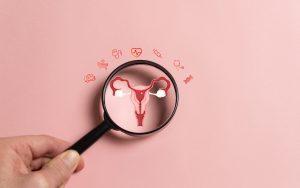Blog
Interstitial cystitis is a chronic condition that causes bladder and pelvic pain. This disease is also known as “painful bladder syndrome.” For people with this condition, pain in the bladder from interstitial cystitis can be mild or severe and may be triggered by other events such as menstruation, sexual intercourse, exercise or sitting too long.…
Regardless of the cancer type, the treatments involved can put women’s reproductive health at risk. From chemotherapy medications to surgery, many treatment approaches have direct impacts on reproductive organs and hormone functions. Unfortunately, these effects can leave you dealing with concerns about losing the ability to conceive, facing early menopause and more. However, the best…
Chronic pelvic pain (CPP) is persistent discomfort in the pelvic region lasting six or more months. The condition is highly prevalent, with as much as an estimated 26.6 percent of women worldwide affected. CPP can disrupt a woman’s everyday life, often forcing a change in daily routines, impeding her capacity to work and negatively affecting…
While the gut is often assumed to influence only digestion, the gut microbiome plays a large role in overall health. The gut microbiome is the vast community of microorganisms living in the digestive tract, including good and bad bacteria. The balance of this bacteria influences digestion, immune function and various other facets of health, including…




